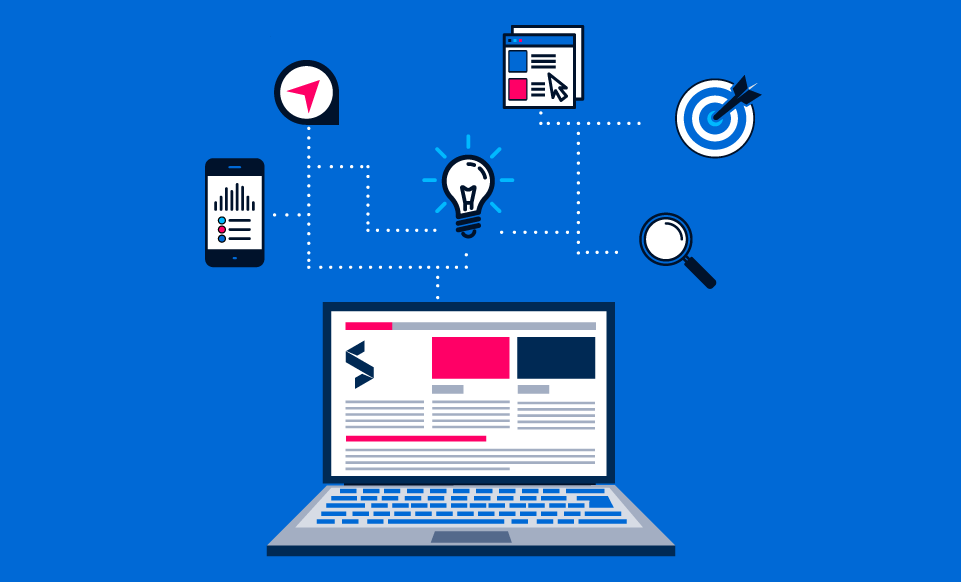The business landscape is rapidly evolving at a pace we have not seen before. The status quo is no longer acceptable and in the do / die environment corporations must operate in, the various departments that underlie the structures on which products and services are delivered must also evolve accordingly. The old model no longer works and what once were disparate departments must now embrace a unified and collaborative approach towards the business and its customers. In this new environment, efficiency reigns supreme where costs and time have become of the essence to survive what is exponentially becoming a cutthroat market. To remain competitive, businesses of all shapes and sizes from all markets are looking at ways to standardize their various operations so that each member, team, and department is suitably equipped to work towards one common goal. This is how an ITIL 4 Foundation certificate can begin to usher in IT departments into the 21st century by streamlining and optimizing the operations of what once was the geek club but has now become pivotal to the success of any business.
ITIL, which stands for Information Technology Infrastructure Library is a comprehensive framework specifically designed by industry experts to standardize the entire IT delivery lifecycle. To this end, it aims to achieve a ‘predicted delivery service’ through efficiency improvements that do away with the wastages so many businesses not employing such standards experience.
Whilst there is a number of different standards used and deployed by different companies in different markets, ITIL’s versatile framework can be deployed regardless of the market a company operates in and its size. Furthermore, this very versatility allows ITIL to be deployed together with other standards in peaceful coexistence and harmony that sees benefits multiply to proponents of this standard.
Currently, in its fourth version, ITIL presents two key structures in the implementation of its framework; ITIL SVS and 4D Model.
The ITIL SVS stands for Service Value System which is split into 5 distinct components being Service Value Chain, Practices, Guiding Principles, Governance, and Continual Improvement. The Four-Dimensional (4D) Model, on the other hand, presents four dimensions that ensure a holistic and consistent approach to service management. These four dimensions are listed as follows; Organisations and people, Information and technology products, Partners and suppliers, Value streams, and Processes.
Looking at how the two structures proposed by ITIL are built, one can straight away start to appreciate the benefits of adopting such a framework can bring to businesses. Ownership and accountability are baked in what ITIL has to offer where IT departments can start to own and be accountable for the entire process and its dependencies thus ensuring a consistent service delivery that continues to improve upon itself over time. Let’s face it, standing still is not an option these days and thus by ensuring continual improvement businesses can ensure IT can provide them with the competitive advantage they need rather than be a liability and a bottomless expense.
Furthermore, ITIL promotes practices and guiding principles to ensure a holistic and comprehensive approach to service delivery which together with the SVS and Four-Dimensional Model provides a true end to end framework that can prove to be beneficial to those undertaking this standard.
The ITIL V4 Foundation course is the first logical step into the world of ITIL. By following this course and subsequent exam, students will familiarize themselves with, and understand the IT Service Management operating model end to end. Furthermore, the course also addresses the creation, delivery, and continuous improvement of both services and products that fall with the remit if the IT department, allowing those who finish the course to gain a true understanding of ITIL which will, in turn, allow them to improve their IT service management.
This fourth version builds upon the previous version whilst including current trends and practices in both software development as well as service delivery in IT. Students can thus be sure that they’re not only learning from industry experts, but also covering the latest progress in the industry for maximum relevance and widespread implementation opportunities. This ensures that what they learn is not only relevant but applicable in different industries, markets, and countries regardless of the methodology used. This is due to the very nature of ITIL which was designed to be as comprehensive as possible yet flexible enough to be applicable in most situations and scenarios. This has the added benefit of seeing it enjoy widespread support thus ensuring better opportunities, support, and information availability.
It is also worth noting that ITIL is accepted globally as a de facto standard in IT Service delivery thus ensuring relevance and employment opportunities across the globe. People in all functions within various IT departments stand to gain by following this course whether you’re a level 1 technical support agent or a project manager managing large scale projects. Service delivery is something all functions have to understand and ultimately embrace to ensure the maximum potential is reached for the best outcome.
One thing that must be kept in mind is that ITIL certification can only be granted to individuals and not companies. Individuals looking at progressing their careers forward would do well to invest in ITIL courses. Starting with ITIL V4 Foundation Certification, following these courses students can learn how to implement this framework within the organizations they work with or for. This will not only help them improve processes but also their career prospects as they become able to deliver more proficiently at much lower costs.














Be First to Comment